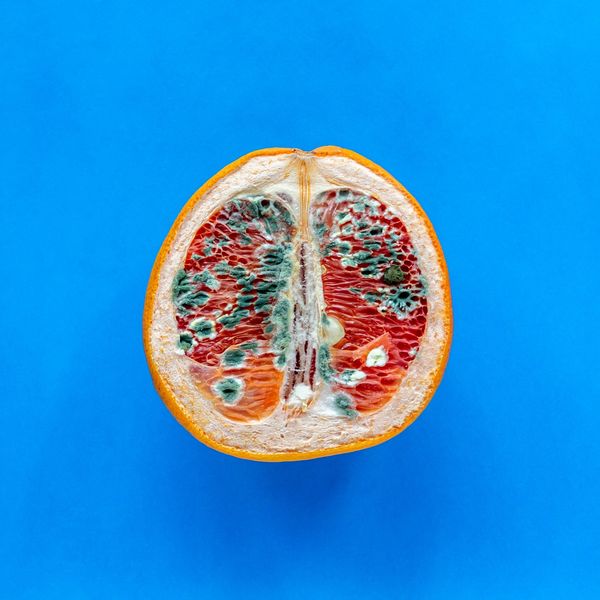Here I am. Ready to discuss something that a lot of us think about yet aren't necessarily or entirely comfortable with discussing — the smell of our coochie. First, let me say that anything that has to do with what makes us a woman is something that we should be cool with talking about (straight up). Then let me add that before getting into these 10 points, if you are trying to make your vagina smell like a bed of roses or a fruit basket, that is never gonna happen. The reality is our vaginas house a ton of bacteria — both good and bad. This means that sometimes it's gonna smell a little on the sour side (like tangy-like). Other times, it may smell like a copper penny (like around our periods). Other times, it may mimic molasses; still not a big deal. The main thing to look out for is a fishy odor or an ammonia-like scent. If this is the case, that typically points to an infection of some sort (one you should see your doctor about).
However, if the smell you're currently dealing with is more in the lane of body odor (which usually happens due to a lot of trapped sweat which is why you should almost always wear cotton undies) or one that is just not-so-fresh, I've got a few things that can help to get things back on track, so that you can feel more confident about how things are looking — well, smelling — down below.
1. Balance Your Vagina’s pH
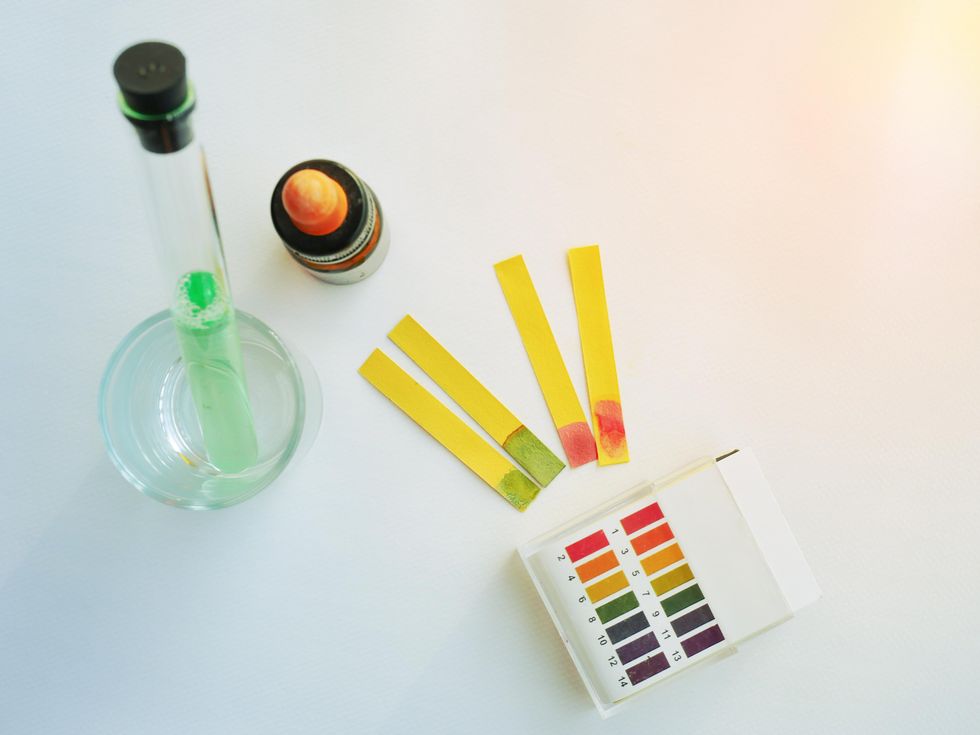
When it comes to this point in particular, I actually just recently wrote an entire article on it. If you check out "Sis, This Is How To Keep Your Vagina's pH Balanced" on our platform, you can learn more about what a pH balance actually is, things that can throw it way off and how to get it "back to the middle" (cue India. Arie). For now, I'll just say that when it comes to keeping your vagina smelling like it's supposed to, a lot of the other "hacks" that I'm about to share wouldn't be all that necessary if your pH level is straight. However, the following nine can play a direct and significant role in helping to make that happen, so let's keep going.
2. Eat Less of Sulfur Foods
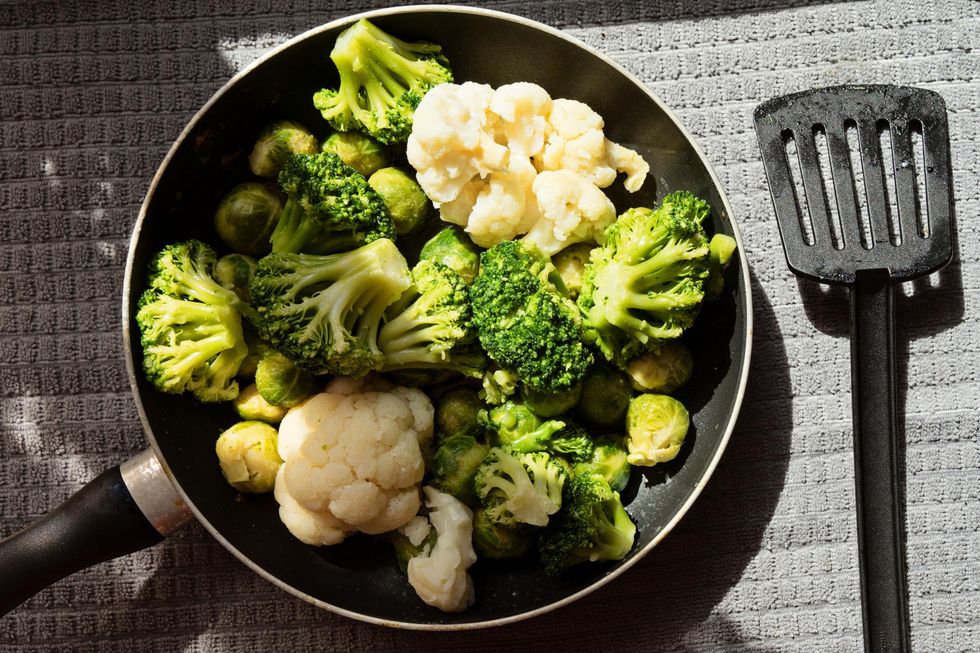
Sulfur is interesting in the sense that it's a chemical in your body that helps your system to produce various amino acids. Because of this, it's beneficial in fighting dandruff, relieving allergy-related symptoms, lowering high cholesterol levels, clearing up acne, helping to unclog arteries and so much more. That's the good part. The downside is it can cause your vagina to smell not so great because sulfur has a bit of a bad egg smell due to some of the compounds that it oftentimes contains. For this reason, eating a ton of foods that have sulfur in it could make your vagina smell a little on the unpleasant side. So, if you're a huge fan of stuff like onions, garlic, broccoli, cauliflower, spinach, kale, eggs, walnuts, beef or turkey — while I'm not saying to go without these foods (because they are also really good for you), if you sense that your vagina isn't smelling so great, scale back and see what happens. Less sulfur in your system might just be the key.
3. Consume Kefir
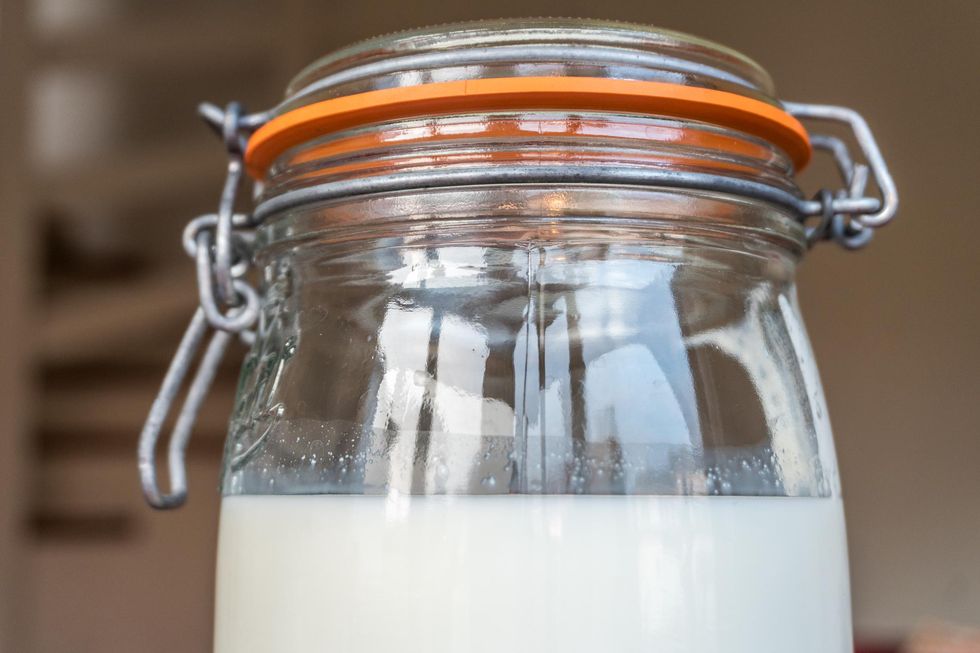
Gee. I wish I had become a fan of kefir a lot earlier in life because, now that it's a part of my diet, I can really tell the difference.
If you're not familiar with what it is, kefir is a fermented food (in drink form) that has the texture and consistency of liquid yogurt yet a probiotic content (two to 10 billion colony-forming units compared to the mere 50 million that's in yogurt) that is totally off of the chain. This is good to know because, within your vagina, there is both good and bad bacteria. When the bad bacteria takes over, not only can that result in irritating health issues like a yeast infection, it can also cause odors from that area to arise.
So, whether you choose to drink kefir straight or do something like pour it into a smoothie, try and add it to your regimen. Like I said, I have and have absolutely no regrets.
4. Snack on Pineapples and Watermelon
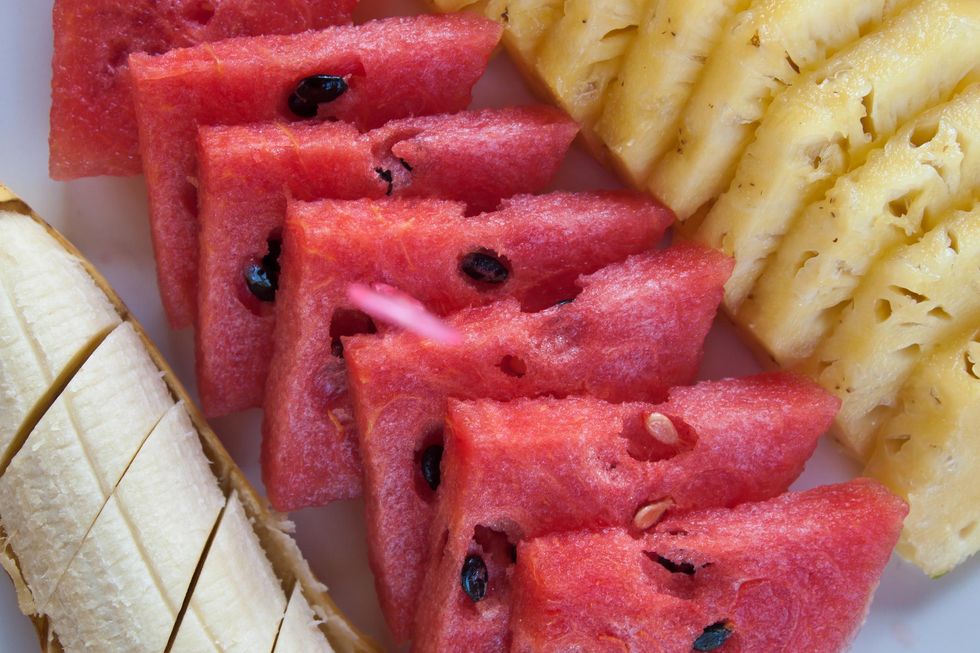
Speaking of consuming things that will make your vagina smell better, anything that will help to give your immune system a boost is always a good idea — including foods that are loaded with Vitamin C. The reason why I specifically listed pineapple and watermelon here is because they both are great at promoting gut health (which also helps your vagina to smell good and healthy). Also, while your vagina will never taste like a pint of ice cream (it wasn't designed to), the extra antioxidants in both of these fruits can help it seem, just a little bit on the sweeter side.
5. Take a Neem Oil Supplement
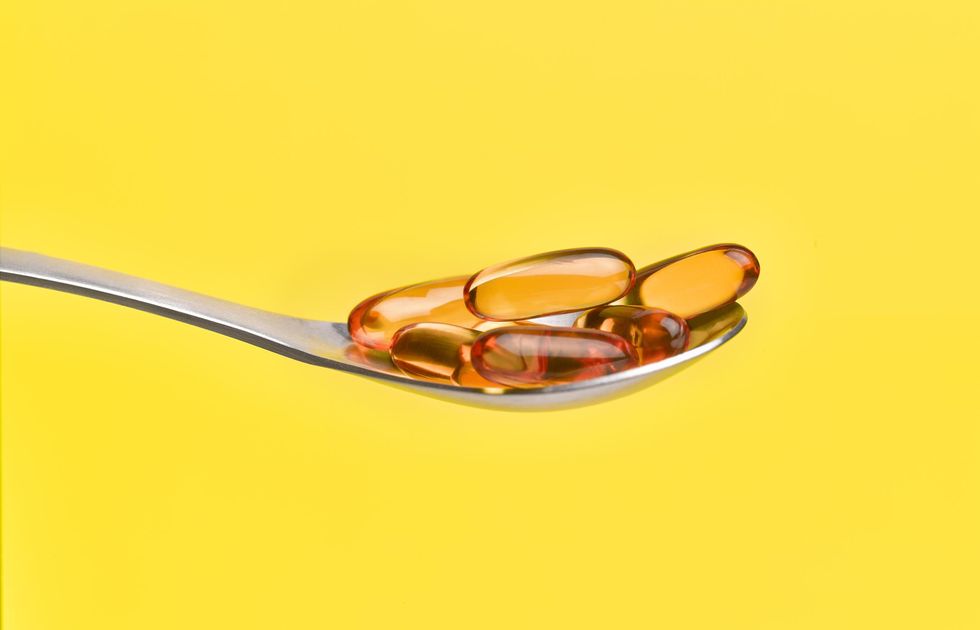
Something else that you might want to consider doing is taking a neem oil supplement.
Neem is a natural herb that has some pretty potent antifungal, antiviral and antibacterial properties in it. This is good to know because, when it comes to your vagina, not only can it help to speed up the healing process of STDs such as gonorrhea, chlamydia and herpes (it doesn't replace antibiotics, it just helps your system to recover faster), it can also help to protect vaginal infections from occurring — ones that could result in your vagina being not so fresh.
While some people like to soak in neem leaves or drink it in tea form, another route is to take a neem oil supplement. As a bonus, the fatty acids in it can help your skin to glow as it fights aging signs.
6. Use a Menstrual Cup
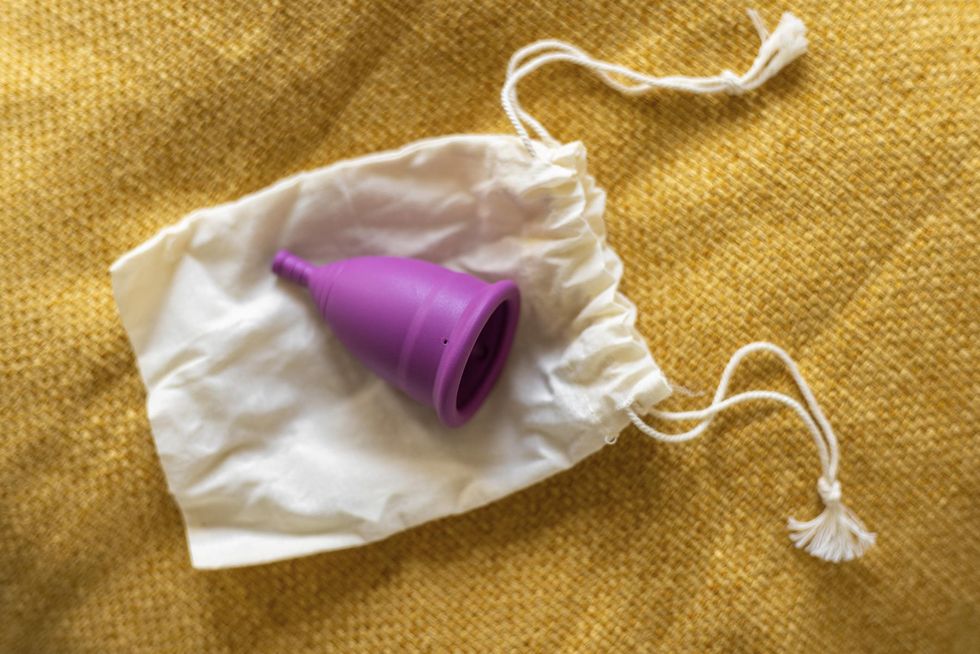
Although I used to wear them in college and a part of my 20s, on this side of wisdom, I'm not a fan of tampons. Like my mother used to oftentimes say, "that blood is designed to flow out". Indeed. As far as pads go, besides all of those fibers not being the best for the environment, they can actually be the cause of vaginal odor during our cycle. While I was in my 40s before I got a hold of a menstrual cup, it really has been life-changing for me. It's comfortable. There's far less leaking. And I don't smell a thing. So, if you've yet to try one, maybe this will be the lil' push that you need to at least give one a try. (By the way, if you have a high cervix like I do, the one that I adore on a whole 'nother level is the INTIMINA Lily Cup. Thank me later.)
7. Drink Mint Water
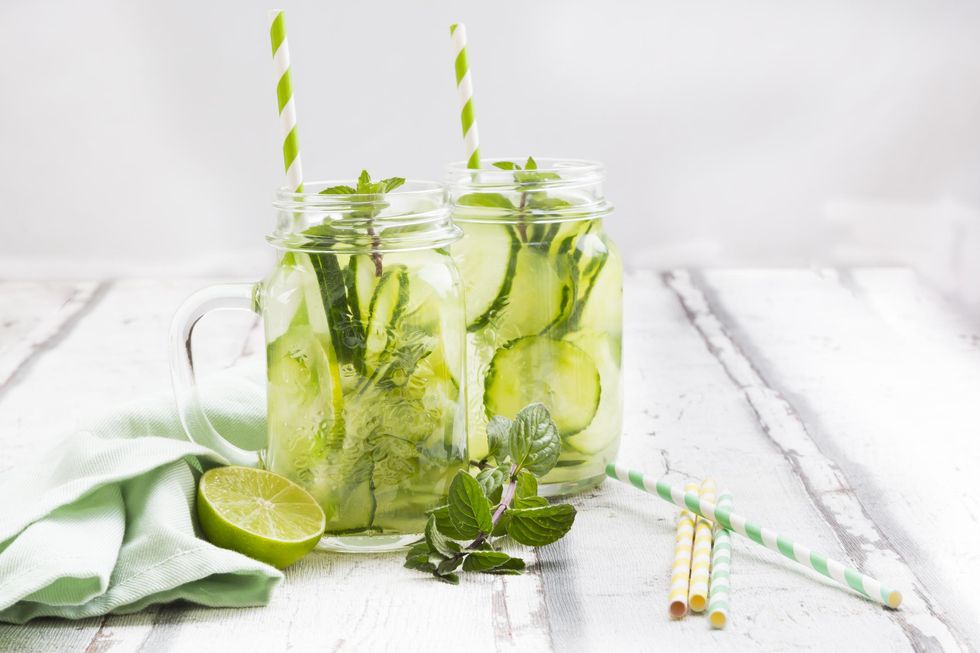
Something that your vagina is full of is mucous membranes. Basically, they provide a protective fluid inside of your vagina. In order for them to function properly, you need to consume the standard 6-8 glasses of water on a daily basis. If you really want to be intentional about your vagina smelling good, add some fresh mint to your glass. Mint contains antibacterial properties that reduce bacteria all throughout your system, your vagina included. Mint is also high in fiber which helps to keep you regular which helps to keep toxins out of your system — which is always good when you want to smell great in your nether regions.
8. Put Apple Cider Vinegar and Baking Soda into Your Bathwater
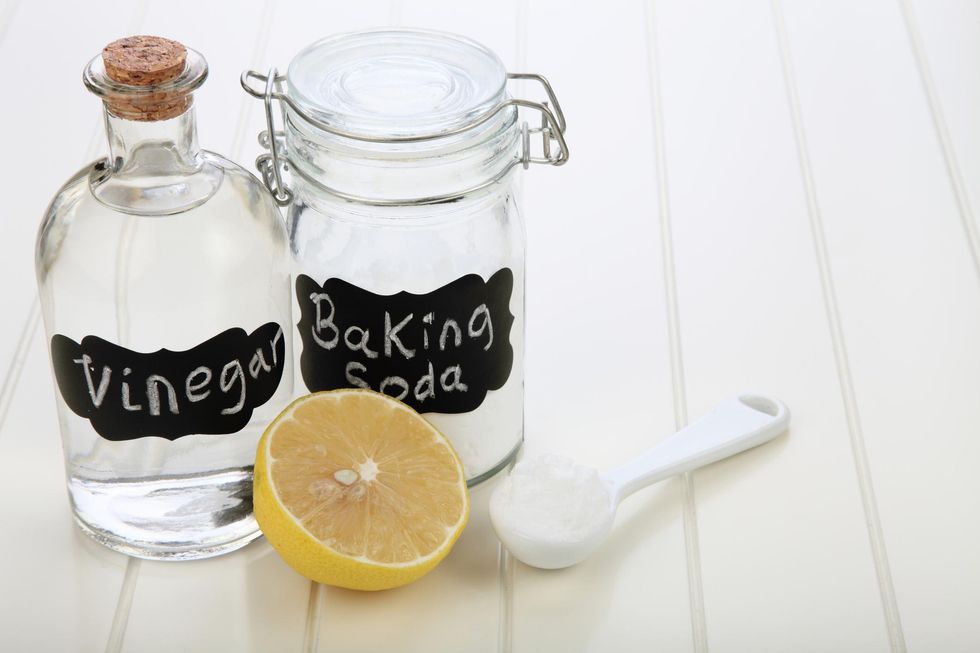
Something that I personally think kinda sucks yet "such is life" is the fact that hot showers and baths have a tendency to throw our pH balance off. So, what temp should your water be? From what I've researched, it needs to be just a tad above your normal body temperature which puts it at around 90° F and 105° F (32° C – 40° C). Anyway, on the days when you want to take a long soak (check out "Did You Know There's A Right & A Wrong Way To Take A Bath?"), it can't hurt to pour a cup of apple cider vinegar (the kind with the mother) and a half cup of baking soda into your tub. The antibacterial and antiseptic properties in the vinegar will flush out toxins and remove bacteria from your vagina (and vulva) while the baking soda will help to deodorize your genitals. For the record, you don't need to do this every time. Just when you notice that your vagina is a little "too tart" smelling, your vagina/vulva is irritated or you want to feel a little extra fresh.
9. Make a Peppermint or Oregano Oil Spray
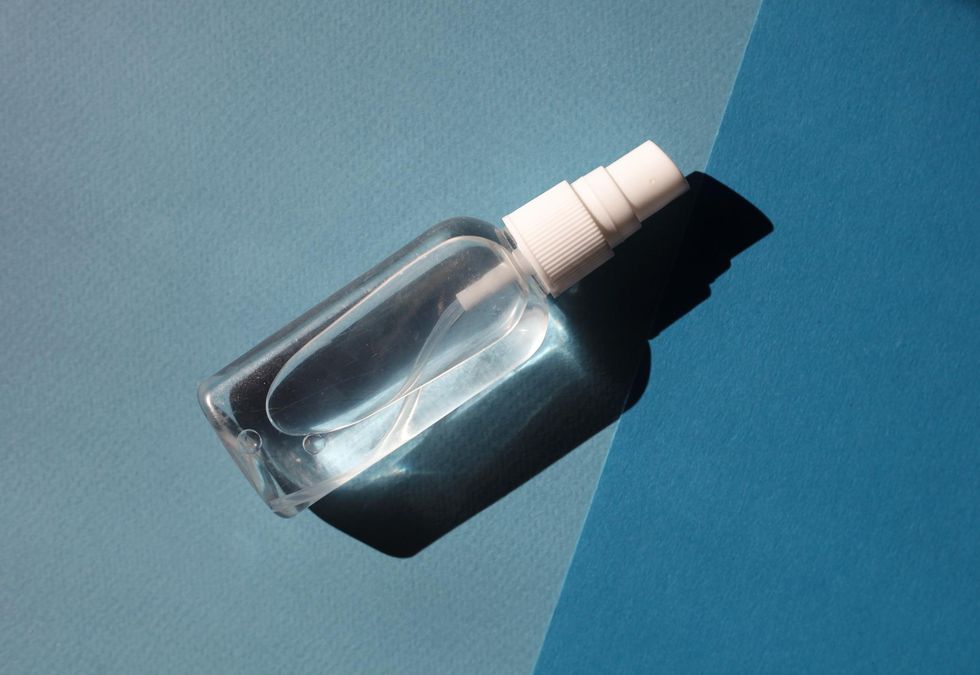
Oregano is an herb that derives from the mint family. As far as your vaginal health is concerned, some people use it as a way to fight the overgrowth of candida; that's because it contains really potent antibacterial properties, the kind that fight "bad bacteria". That's why you might want to also make an oregano spray out of distilled water and pure oregano oil. Just fill a small spray bottle up and add 10 drops of oregano oil. If you're about to go work out, spray a bit of the combo onto your pubic mound (not directly into your vagina). It can fight odor-causing bacteria so that odors won't arise.
10. Practice Proper After-Sex Protocol

Sperm/semen can throw your vagina's pH levels way off which can also result in your vagina not smelling too awesome. That's just one more reason to go with a condom when you're getting it in (check out "10 Things You Should DEFINITELY Know About Condoms" and "10 Ways To Make Using A Condom So Much More Pleasurable"). Yet if that's not how you get down, while it might seem all romantic 'n stuff to lay up with your partner for hours after climaxing (I mean, here's hoping, right?), it really is a good idea to follow a bit of an after-sex protocol which includes peeing right after sex and taking a bath, if you can.
An article that I wrote for the platform entitled, "Here's How To Care For Your Vagina AFTER Sex" can give you a play by play breakdown. I mean, it's not like he can't join you in the water if you want (check out "So, This Is How To Make Shower Sex So Much Better"). That way, you can get a 2-for-1 deal — another round and a healthy va-jay-jay. Simultaneously. Dope.
To learn more about all things vaginal health and wellness, check out the xoNecole Women's Health section here.
Featured image by Getty Images
- Treat Chronic BV - Bacterial Vaginosis - Holistic Health - xoNecole ... ›
- Best DIY Feminine Wash, Vaginal Wash Recipes - xoNecole ... ›
- Foods That Keep Your Vagina Smelling Right - xoNecole: Women's ... ›
- How To Make Your Vagina Taste Sweeter - xoNecole: Women's ... ›
- 10 Ways Vaginas Change As You Age - xoNecole: Women's Interest, Love, Wellness, Beauty ›






